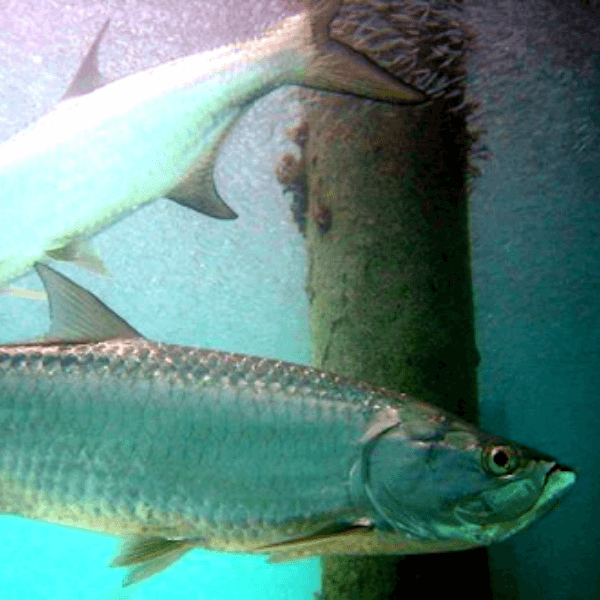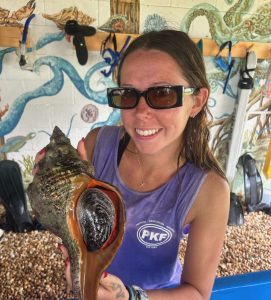Atlantic Tarpon (Megalops atlanticus) are large, silvery sport fish commonly found throughout Florida and the Florida Keys. Tarpon can grow up to 8 feet in length, weigh up to 350 pounds, and live over 50 years. It’s no wonder they are called the “silver king!” A tarpon’s diet generally consists of small fish like pinfish, Atlantic needlefish, or crustaceans such as shrimp and crab. Tarpon swallow their prey whole due to the small size of their teeth not allowing them to tear chunks from their prey. These fish are typically preyed upon by bull sharks and hammerhead sharks, which follow them during tarpon migration periods.
Tarpon are a highly sought-after gamefish due to their elusiveness and their ability to spit hooks. These fish are invaluable to the economy of Florida, as they bring in millions of dollars each year via recreational and sport fishing charters.
March marks the beginning of the tarpon migration and is considered one of the best times to go fishing for them in the Florida Keys due to the water being warm enough to start catching these iconic sport fish. Not only is the water warm enough, but these tarpon are typically full of energy, which helps produce the fight that most fishers seek. Tarpon are classified as vulnerable by the IUCN (International Union for Conservation of Nature) and when caught, it is crucial to properly resuscitate the fish, otherwise it could become vulnerable prey or die from oxygen deprivation.
These fish are found in the Gulf of Mexico and the Caribbean, on the western Atlantic Ocean from Virginia to central Brazil, and along the coast of Africa in the eastern Atlantic. Tarpon are typically a coastal fish and are found living in estuaries and bays. They even possess the ability to sometimes travel into freshwater. This is due to the tarpon’s unique ability to get oxygen from the atmosphere by going up to the surface and taking a gulp of air. They can often be found under bridges and similar structures in the Florida Keys.
On Pigeon Key, you may be able to see them underneath or around the dock if you choose to go snorkeling! There are also a few tarpon that live in our saltwater pool, so keep an eye out for those as well! While you visit Pigeon Key, feel free to explore the rest of the island by visiting our history museum or tidepooling in the shallow waters around the island.




